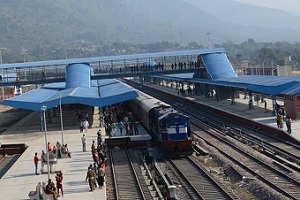Giving a major boost to the safety and security of passengers especially women and children, Indian Railways and its PSU RailTel have installed IP-based CCTV surveillance cameras at 813 major railway stations across India. At 47 additional stations, the work is in progress and it will be completed soon, RailTel said in the statement. Besides, by the month of March next year, 756 more railway stations are targeted to be covered.
This Indian Railways project covers all categories of stations and around 5,000 railway stations are being executed by the PSU. On June 25 last year, the national transporter had signed an MoU with RailTel for installing CCTVs at railway stations. The PSU had floated four tenders in May this year covering 456 railway stations, say reports.
These IP-based CCTV cameras are being networked on optical fiber cable and their video feed is being displayed at local RPF posts and also at a centralized CCTV control room at zonal and divisional levels. To ensure enhanced safety and security at railway premises, the CCTV cameras and video feeds are being monitored at three levels. So far, the PSU has completed the work of setting up a centralized control room at 14 zones of Indian Railways and work at the rest is currently in progress.
According to RailTel, for monitoring of cameras, server, UPS and switches, a Network Management System (NMS) has also been provided, which can be viewed from any web browser by authorized personnel. In order to ensure maximum coverage inside the railway premises, four types of IP-based cameras are being installed including Dome type, Bullet type, Pan Tilt Zoom type and Ultra HD- 4k. RailTel said this will give extra edge to the Railway Protection Force officials to improve security. The video feed recordings from CCTV cameras will be stored for a period of 30 days, it added.








